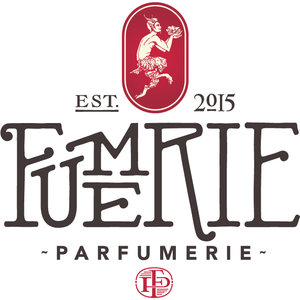François Coty
François Coty is the single most important figure in the history of the modern perfume industry. Born in Corsica in 1874, Coty first learned about perfumery while working in a pharmacy. However, it was not until he was introduced to Antoine Chiris by a mutual friend that his perfume career began in earnest. The Chiris family were manufacturers and distributors of perfumes; Coty began studying the art of perfumery in their laboratory, eventually developing his first fragrance, Le Rose Jacqueminot. After intentionally dropping a bottle at iconic French department store Magasins du Louvre, demand for his fragrance skyrocketed, making Coty a millionaire and a fixture of the perfume industry. Over the next decades, Coty revolutionized the perfume industry. His brilliant marketing strategies changed the way that perfume was purchased. Coty's approach is best encapsulated in his famous quote: "Give a woman the best product to be made, market it in the perfect flask, beautiful in its simplicity, yet impeccable in its taste, ask a reasonable price for it, and you will witness the birth of a business the size of which the world has never seen." His creations changed the perfume landscape, pushed boundaries and explored uncharted territories. Several of his most iconic fragrances serve as models for well-known fragrance families to this day including L'Origan (1905), Chypre de Coty (1917) and Emeraude (1921).
In 1923, after a close race, Coty was elected senator of Corsica, but his victory proved short-lived. The French Senate annulled his election in 1924 after accusations of bribery.
In 1922, Coty bought Le Figaro, a prestigious conservative newspaper with an upper-class readership. Coty changed the newspaper's name to Figaro and moved its headquarters to the Rond-Point des Champs-Elysées.[34] Under Coty's ownership, the journal, once moderately conservative, adopted an extreme right-wing stance on politics and the economy. Figaro printed many fierce anti-Communist articles, and was notorious for its strong opposition to the government. He also subsidized "half a dozen extremist papers, including the Action française (to which he gave over five million francs), Cassagnac's Bonapartist Authorité and Le Flambeau, the organ of the Croix de Feu.
In 1926, Coty worked with Prime Minister Raymond Poincaré to create a fund to stabilize the French currency. He offered to lend 100 million francs to the French government, but was left out of the group appointed to oversee the fund, possibly because of his controversial political views. He then took his money to New York and donated a sizable sum to the French Hospital in New York.
Disappointed once again, in 1926, Coty launched L'Ami du peuple, a newspaper aimed at the working class. Priced much lower than other competing newspapers, it soon gained a huge readership. He wrote a long series of incendiary articles that did not go unnoticed; on 1 July 1933, he was found guilty in court for libel against Jewish war veterans' groups in France and in September 1933, he sent a telegram to the Geneva Jewish Community, in which he recanted his anti-Jewish charges and asked that the telegram be read at the Jewish Conference for a World Jewish Congress.
Coty gave financial support to what later became far-right organizations, such as the Faisceau and Croix-de-Feu, a World War I veterans organization; however, he ended his support after a few years. In 1933, surrounded by courtisans, parasites or scoundrels, misled by more seasoned politicians, he published a Reform of the State and founded his own movement: French Solidarity. After his death in July 1934, the movement became more radical.
Coty was a Bonapartist, nationalist, fervent defender of a strong Republic with a preponderance of executive power, like a number of his fellow citizens, in this period of the Third Republic. He wrote two books: Against Communism, 1928 and Save our colonies, 1931. In his Reform of the State, he proposed the election of the President of the Republic by direct universal suffrage, including women's votes, with a term of seven years and the possibility of holding two terms, as well as the creation of a supreme court. These measures were in part, later adopted by the Fifth Republic, established by Charles de Gaulle in 1958.
The Stade François Coty (a football stadium) in Ajaccio was named after him.
*fragrances listed for reference only, not sold at Fumerie
CHYPRE Coty
image and bio via wikipedia

